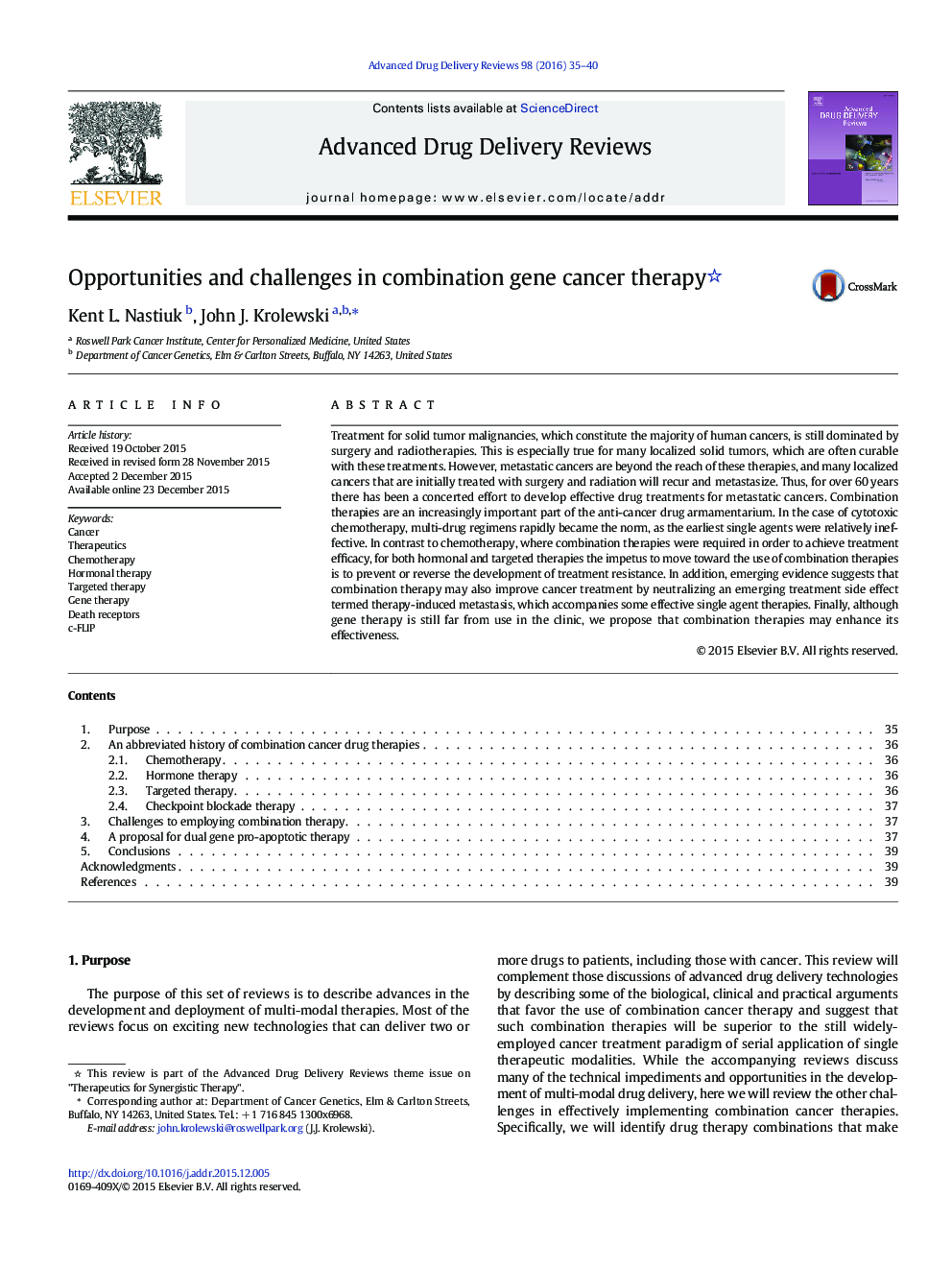| Article ID | Journal | Published Year | Pages | File Type |
|---|---|---|---|---|
| 2070755 | Advanced Drug Delivery Reviews | 2016 | 6 Pages |
Treatment for solid tumor malignancies, which constitute the majority of human cancers, is still dominated by surgery and radiotherapies. This is especially true for many localized solid tumors, which are often curable with these treatments. However, metastatic cancers are beyond the reach of these therapies, and many localized cancers that are initially treated with surgery and radiation will recur and metastasize. Thus, for over 60 years there has been a concerted effort to develop effective drug treatments for metastatic cancers. Combination therapies are an increasingly important part of the anti-cancer drug armamentarium. In the case of cytotoxic chemotherapy, multi-drug regimens rapidly became the norm, as the earliest single agents were relatively ineffective. In contrast to chemotherapy, where combination therapies were required in order to achieve treatment efficacy, for both hormonal and targeted therapies the impetus to move toward the use of combination therapies is to prevent or reverse the development of treatment resistance. In addition, emerging evidence suggests that combination therapy may also improve cancer treatment by neutralizing an emerging treatment side effect termed therapy-induced metastasis, which accompanies some effective single agent therapies. Finally, although gene therapy is still far from use in the clinic, we propose that combination therapies may enhance its effectiveness.
Graphical abstractFigure optionsDownload full-size imageDownload high-quality image (86 K)Download as PowerPoint slide
